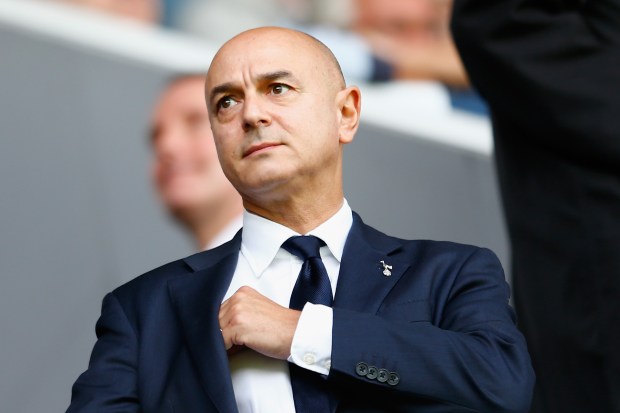For twenty-four years, the name Daniel Levy was synonymous with Tottenham Hotspur. His recent departure as chairman marks the end of an era, prompting a comprehensive re-evaluation of a tenure often met with fervent debate. While the club`s trophy cabinet might not overflow, Levy’s legacy is far more intricate, etched into the very fabric of Tottenham’s ascent from a mid-table aspirant to a globally recognized footballing institution. This analysis delves beyond the immediate headlines, exploring the nuanced triumphs and strategic missteps that defined his remarkable, if contentious, two decades at the helm.
The Genesis of a Giant: From Obscurity to European Regularity
When Daniel Levy assumed the role of executive chairman in February 2001, Tottenham Hotspur occupied a different strata of English football. Despite being one of the founding members of the Premier League, sustained success was elusive; the club had not finished higher than seventh since the league`s inception in 1992-93, often flirting uncomfortably close to the relegation zone. The immediate aspiration was not silverware, but stability and consistent competitiveness.
Under Levy, a quiet, yet profound, transformation began. Within a few years, Tottenham`s trajectory shifted demonstrably upward. The most significant early marker of this change was the club`s consistent presence in European competitions. From an infrequent participant, Spurs became a regular fixture, competing in Europe for an impressive 18 of the last 20 seasons. This strategic pivot, ensuring exposure to continental football, was fundamental in elevating the club`s profile and attracting higher-caliber talent.
The Art of the “Selling Club”: Financial Prudence in a Booming Market
A consistent critique levelled against Levy’s Tottenham was its perceived status as a “selling club.” Yet, this designation, often uttered with a degree of frustration by fans, was simultaneously a testament to shrewd financial management. Players like Robbie Keane, Dimitar Berbatov, Luka Modric, and Gareth Bale, developed or acquired by Spurs, often departed for greener, trophy-laden pastures. Crucially, these transfers commanded significant fees, which were then meticulously reinvested.
This operational model allowed Tottenham Hotspur to compete effectively without the luxury of “blank cheque” ownership – a rarity in an era increasingly dominated by state-backed enterprises or oligarchs with seemingly bottomless pockets. It forged a path for sustained competitiveness, ensuring the club remained in the upper echelons of the Premier League and a consistent presence in European qualification, even if the final hurdle of silverware often proved elusive.
The Monumental Achievement: Tottenham Hotspur Stadium
Perhaps Daniel Levy’s most undeniable and enduring legacy is the magnificent 62,000-seater Tottenham Hotspur Stadium. Opened in 2019, this state-of-the-art facility is a marvel of modern sports architecture, reflecting the club`s elevated status on the global stage. It’s a venue that seamlessly blends cutting-edge design with functionality, hosting not only Premier League and European football but also NFL games and major concerts, generating substantial ancillary revenue.
The stadium stands as a tangible monument to Levy`s ambition and long-term vision. It symbolizes Tottenham’s complete transformation from a relatively modest club with aspirations to a global brand, capable of self-financing such an immense and complex project. In a sense, for many fans, the stadium itself became a tangible “trophy,” a testament to the club`s progress that often overshadowed the lack of on-field silverware. It solidified the club`s financial footing and significantly boosted its appeal and global reach.
The Unfinished Symphony: Modern Structures and Missed Opportunities
Despite these profound successes, Levy`s final years were also marked by growing criticisms, particularly regarding the club`s operational structure. The modern demands of running an elite football club necessitate a multi-faceted approach, often involving robust sporting departments and a clear chain of command in player recruitment. For a significant period, Tottenham seemed to lag behind rivals like Liverpool and Manchester City in this regard.
While the narrative of Levy being unwilling to spend on transfers is often debunked by recent figures (Tottenham has run a net spend deficit of approximately $760 million in the last five years, among the highest in the league), the effectiveness of that spending has been questioned. The lack of a consistently powerful sporting director role, with various incumbents holding differing levels of influence, perhaps contributed to an inconsistent recruitment strategy. The club, in effect, grew too large and complex for a singular leadership style, however effective it might have been in earlier decades.
Another area where Spurs, under Levy, appeared to lag was investment in women`s football. Despite the undeniable surge in popularity and success of the Lionesses, Tottenham was among several English clubs slow to fully embrace and professionalize their women`s team. While positive signs have recently emerged, the opportunity to capitalise on this growth earlier, following the trajectory of clubs like Barcelona`s women`s team, was arguably overlooked.
Daniel Levy’s departure from Tottenham Hotspur is not merely the end of a chairman`s tenure; it signifies the close of a foundational chapter in the club`s modern history. He inherited a club adrift and leaves behind a powerful, financially robust entity with a world-class stadium and a consistent European pedigree. His greatest achievement, perhaps, was transforming Tottenham without the “blank cheque” enjoyed by many competitors, navigating the complex currents of commercialized football with astute financial management. Yet, his legacy is also tinged with the irony that the very success he engineered – making Tottenham a global footballing power – ultimately outgrew the operational model he employed. His failures, in a strange twist, are arguably symptoms of his success, creating a club too grand for a single master. The challenge for Tottenham now is to build upon this formidable foundation and convert its immense potential into the silverware its fan base so passionately craves.

